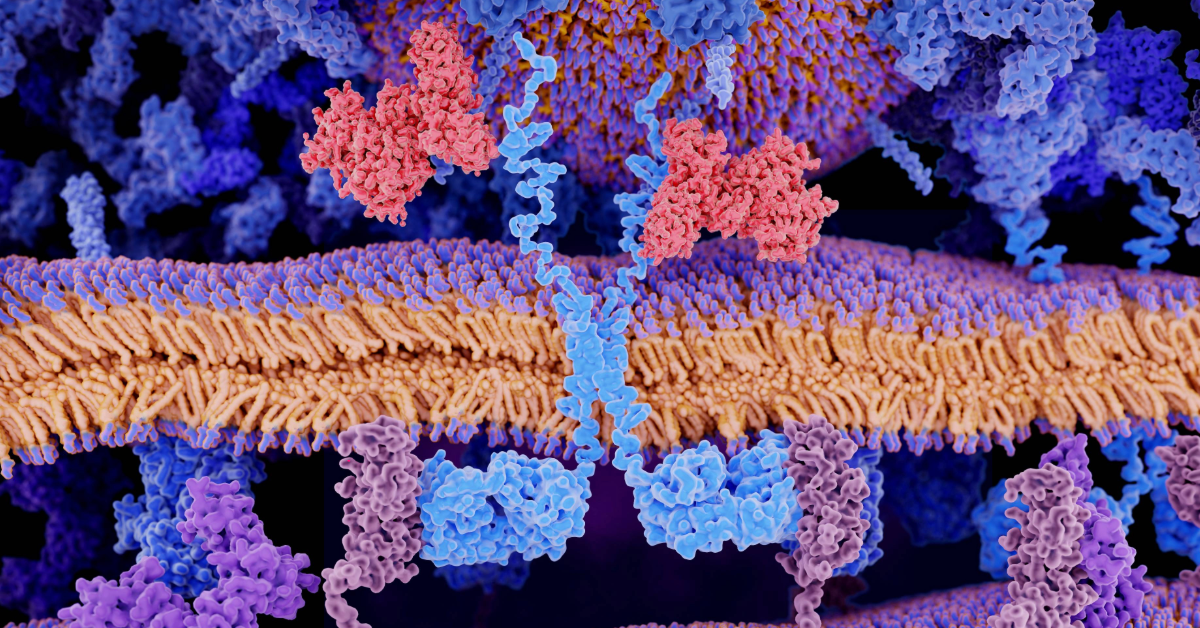
As part of our Thought Leaders series, we explore the unique perspectives neurodivergent individuals can bring to the legal industry.
Forward: features discuss and celebrate the best of innovation and exploration from the scientific and entrepreneurial worlds.
Everyone’s mind is unique – we each think in slightly different ways. That said, as with many characteristics, people cluster into broadly-similar groups, with the largest – termed “neurotypical” – containing most of us. A catch-all term for people outside the neurotypical group is “neurodivergent”. Examples of neurodivergent groups you may have heard of include those with autism, ADHD, OCD, dyslexia, or dyscalculia, amongst others.
What is neurodiversity?
The term “neurodiversity” was popularised in the 1990s by sociologist Judy Singer, who proposed it as an alternative to the traditional social model of disability as this tends to focus on impairments. As Thomas Armstrong, author of the book The Power of Neurodiversity: Unleashing the Advantages of Your Differently Wired Brain’, points out, we tend to use more positive language when we talk about biodiversity than when discussing neurodiversity. The neurodiversity movement hopes to change this. To Singer, neurodiversity is a result of normal variations in the human genome and neurodivergent people have strengths and weaknesses like anyone else. Many aspects of neurodiversity can actually be a competitive advantage within the right environment.
Many neurodivergent lawyers choose not to be ‘out’ at work about their neurological differences. However, with support from firms such as Mewburn Ellis and organisations such as IP Inclusive and Neurodiversity in Law, a growing number of people within the legal profession are now choosing to speak about their experiences to help destigmatise neurodiversity.
Unique Perspectives
Neurodivergent individuals often have unique perspectives on things. Their ‘outside-the-box’ thinking can be extremely useful in challenging cases without a clear path forward. With their brains processing information differently, they may be able to see solutions that others cannot.
For example, people with ASD commonly have a highly focused interest in a particular subject or specialist area. In the legal and patent profession, this can be extremely useful as we often delve into niche areas of law or technology. Having people on the team who have highly focussed interests can help bring more detail and thoroughness to a task where it interacts with those areas.
Having neurodivergent people in teams can also help to ensure that the neurodivergent perspective is considered. Neurodivergent staff can identify where information presented might be confusing and hard to follow for neurodivergent readers. No doubt some patent office examiners and clients are neurodivergent as well! In fact, research suggests that entrepreneurs are more likely than the general population to have ADHD or dyslexia. It has been speculated that many famous scientists were neurodivergent, from Thomas Edison and Albert Einstein to Ada Lovelace.
Pattern recognition and perception
Neurodivergent people can have altered sensory perception which can make them better at recognising certain types of information, particularly in complex text, patterns, and images. This is particularly common in people with ASD and ADHD. This can be useful in the legal profession, as we often have to check our work very thoroughly and being able to detect subtle changes or errors more readily can reduce errors like critical typos. Similarly, people with dyslexia or ADHD can have a strong memory for details, patterns and visual information.
Emotional Intelligence
Understanding and sharing the feelings of others is a critical skill in all workplaces. This is especially true in the legal profession where so much of what we do is understanding other’s perspectives and trying to convince others through argument that our point of view is the correct one.
A common misconception is that autistic people lack empathy. It is correct that autistic people often have difficulty reading the emotions of neurotypical people, such as via facial cues or body language. This difficulty can limit their intuitive grasp of social rules. However, to compensate for this, some autistic people develop a complex intellectual understanding of people’s emotions, body language, and theory of mind. They may not necessarily pick it up naturally, but they can learn to observe it, and potentially become very skilled in this area.
This learned skill can be particularly useful in being diplomatic in context where intuitive social cues are not as accessible, for example during phone or video calls, or in anticipating how someone will react to written communication. With so much of what we do in the legal profession being in written form, having a strong intellectual grasp of how readers may react is extremely useful.
By contrast, people with ADHD can have a heightened sense of empathy and can be very attuned to the emotions of those around them. They may pick up on more subtle social cues which they can respond to. This can make them effective in hearings, in client calls, and in managerial roles, since they can be more in tune with people’s emotional states and needs.
Hyperfocus
A common property among neurodivergent people, particularly those with ADHD, is “hyperfocus”. This refers to a state of intense state of concentration or fixation into a particular task, where they are very difficult to distract. This can be very valuable in certain work situations. While in hyperfocus, the person can work very efficiently on a single task with a heightened attention to detail and thoroughness. This can lead to efficient and innovative work which dives deeply into a problem. It can be particularly useful when working on urgent projects and can allow the person to keep calm under pressure.
Inclusivity in general
Encouraging neurodiverse people in the workplace is an important part of building a diverse and inclusive workplace in general. Neurodiverse people often have a unique perspective on social issues and are more likely to challenge stereotypes.
Neurodivergent people may be more likely to recognise and challenge ableist attitudes. Often these people have experience with discrimination and social exclusion themselves, so they are better equipped to empathetic and understanding of the challenges people can face when they are outside the norm.
A common trait of people with autism is a strong sense of justice and more absolutist thinking about right and wrong. This can be helpful in ensuring that a workplace is fair and honest. This is particularly important in the legal profession as we are required to act with the highest degree of honesty and propriety.
Furthermore, recognising the difficulties that neurodiverse people can face and making accommodations for them can help foster a more inclusive atmosphere where all diversity is celebrated. This helps everyone feel safe and supported as we work together.
Conclusion
Whether ‘out’ or even aware of their own neurotype, neurodivergent people are all around us, including in the workplace. As we have shown, neurodivergent people are often highly skilled in a range of valuable legal skills, including problem-solving, written communication and lateral thinking. Recognising the natural variations in the human brain and the benefits that neurodivergent people can bring can only be helpful to the legal profession.
Resources
If you want to learn more about neurodiversity, we recommend checking out the following resources from the Law Society, Lawcare and other organisations.
- https://www.lawsociety.org.uk/topics/lawyers-with-disabilities/from-access-to-inclusion-neurodiversity-at-work
- https://www.lawcare.org.uk/get-information/articles/neurodiversity-and-mental-health-in-the-legal-profession/
- https://www.neurodiversityinlaw.co.uk
- https://neurodiversityinbusiness.org/
- https://geniuswithin.org/
This article was originally written by George Lucas and Rebecca Campbell
Lucy is an experienced UK and European Patent Attorney and UPC representative specialising in physics and software, and with a specific focus on contentious work and litigation. Her deep knowledge and expertise in the vast array of options for challenging patents in Europe allows Lucy to advise her clients on a pan-European patent litigation strategy, centred on balancing the options available to achieve their commercial goals.
Email: lucy.coe@mewburn.com
Sign up to our newsletter: Forward - news, insights and features
Our people
Our IP specialists work at all stage of the IP life cycle and provide strategic advice about patent, trade mark and registered designs, as well as any IP-related disputes and legal and commercial requirements.
Our peopleContact Us
We have an easily-accessible office in central London, as well as a number of regional offices throughout the UK and an office in Munich, Germany. We’d love to hear from you, so please get in touch.
Get in touch

